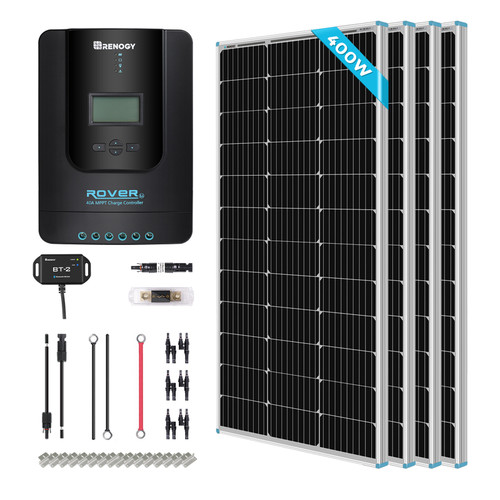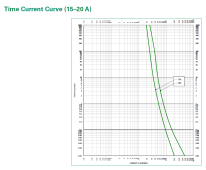I have the Renogy 400w solar kit. The panels have:
15a max series fuse rating
Short Circuit Current (ISC) 5.21a
If I run the 4 panels in parallel I'd be up to 20.84a (5.21x4). If one of the panels shorts and the other three panels decide to take the path into that panel they would only be pushing 15.63a (5.21x3 good panels) right? So that 15.63 is right inline with the 15a max series fuse rating.
Their website seems a bit contradictory to me. It shows a diagram of the panels in parallel with a 10a fuse on just one panel (not sure what that does) but then also says '
if you choose to connect in parallel, you can use three pairs of Solar Y Branch Connectors to connect four panels in two by two, and then parallel again; do not use an in-line fuse in parallel circuits."
4* 100W Eclipse Monocrystalline Solar Panels totaling 400 Watt, 1* 40 Amp MPPT Charge Controller, 2* 20' Solar Extension Cables, 1* Solar Adapter Kit 9'' in length, and 4 Sets of Z brackets for Mounting

renogy.com
I suppose I could add in a 10a fuse on each positive line from the panel, beyond the short circuit current but enough to catch the 15.63 short circuit ratings, but
is adding a fuse on each panel positive wire, 4 in total, really necessary?





